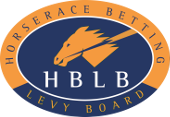Background and Statutory Responsibilities
The Horserace Betting Levy Board (HBLB) is a UK statutory body that was established by the Betting Levy Act 1961. It operates in accordance with the provisions of the Betting, Gaming and Lotteries Act 1963 (as amended). It is a non-departmental public body (NDPB), and its sponsoring Government department is the Department for Culture, Media and Sport.
Unlike some NDPBs, HBLB receives no central Government grant-in-aid and no National Lottery funding. Instead, it is required by the Act to collect a statutory levy from the horseracing business of bookmakers.
The Levy on off-course betting represents the greatest proportion of HBLB's income. It is collected from bookmakers as a percentage of the gross profit on their British horserace betting business. The majority of Levy income is expended in direct support of horseracing.
HBLB is among the most important contributors to horseracing's finances. The original intention of establishing the Levy, and therefore HBLB, was to provide a means of compensating racing for the loss of attendance that was anticipated when off-course betting shops were legalised in 1961. Today, HBLB applies Levy funds to a wide range of schemes in direct support of horseracing.
HBLB's statutory objectives are to collect the Levy from bookmakers and to apply the funds so raised to one or more of the following:
- the improvement of breeds of horses;
- the advancement or encouragement of veterinary science or veterinary education;
- the improvement of horseracing.
The Levy is collected in accordance with the 1963 Act (as amended). The Levy is distributed each year in accordance with HBLB's Business Plan. Usually, around 90% of Levy income is applied to the improvement of horseracing each year although this is at the Board's discretion.
